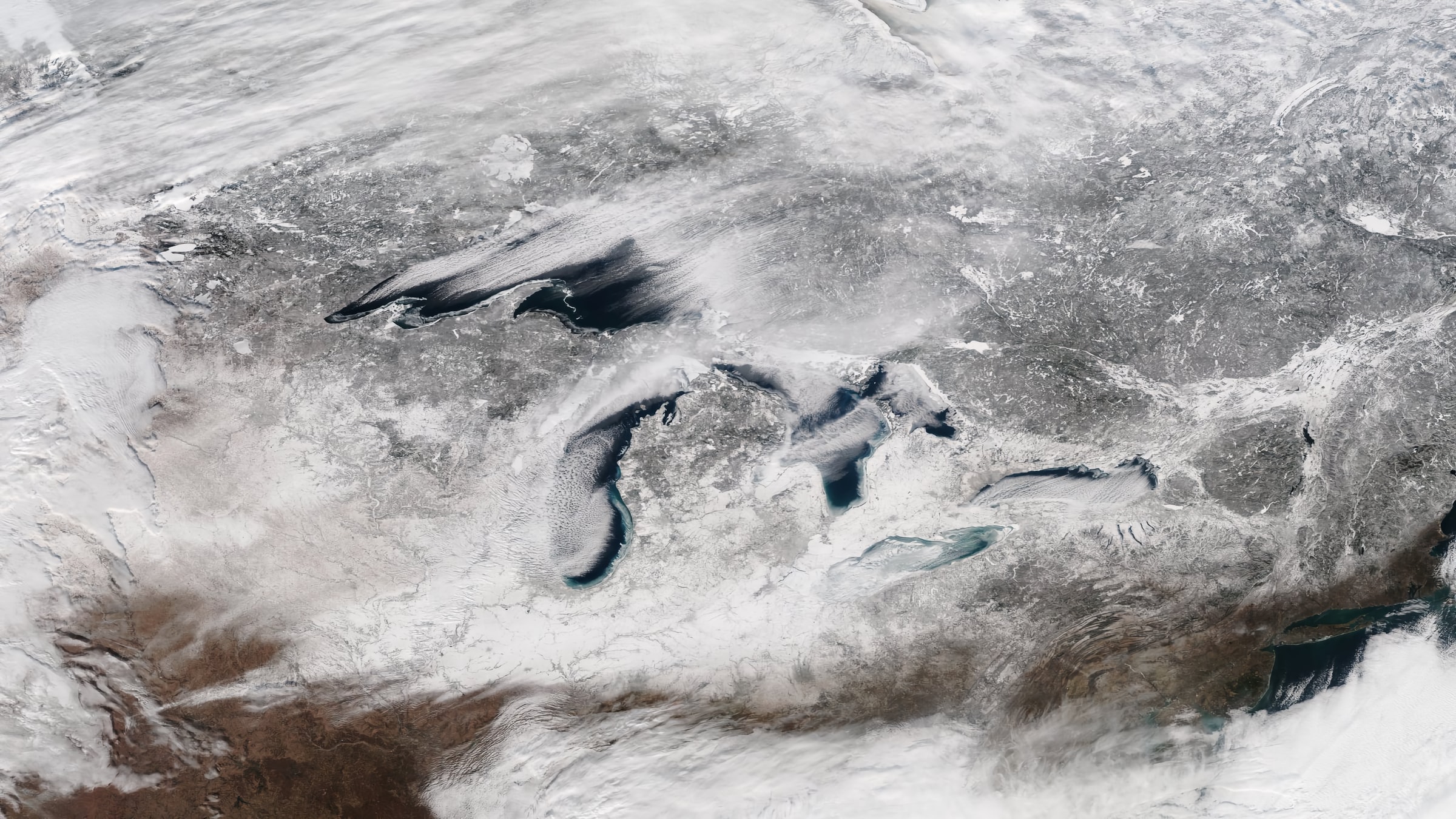MSU, UM Secure $5.4M for Continued Great Lakes Climate Adaptation Work
November 1, 2021

The Great Lakes Integrated Sciences and Assessments initiative, known as GLISA, has been awarded $5.4 million from the Climate Program Office of the National Oceanic and Atmospheric Administration (NOAA) to conduct climate change research in the Great Lakes for an additional five years. Initially established in 2010 as a joint effort between Michigan State University and the University of Michigan and renewed in 2016, this third phase of funding will enable the GLISA team to continue its mission of helping the region prepare for and adapt to climate variability and change. New and ongoing work will continue to focus on cities, tribes, and agriculture through 2026.
Under this funding cycle, MSU will co-develop and demonstrate adaptive management strategies designed to reduce weather- and climate-related risks in agricultural production systems. Matthew Gammans, an assistant professor with the MSU Agricultural, Food, and Resource Economics department, will lead this work with GLISA co-director and MSU professor of Geography, Jeff Andresen. Andresen also serves as the state climatologist for Michigan.
In addition, the funding will enable GLISA to broaden its capacity and efforts through new partnerships. These include projects with the College of the Menominee Nation and the University of Wisconsin.
Utilizing an inventory and evaluation previously produced by GLISA researchers, projects with the University of Wisconsin team led by co-principal investigator Michael Notaro will work to produce highly detailed climate change projections for the Great Lakes region. Work with the College of the Menominee Nation under the leadership of co-principal investigator Thomas Kenote will investigate tribal relationships with water resources while concurrently creating a framework for similar entities engaging with traditional Indigenous and ecological knowledge and experiences. An innovative pilot student exchange program with U-M will also be a focus of this work.
For more than ten years, GLISA has played an important role in the region by co-producing usable climate information with a diverse network of researchers, partners, and stakeholders while advancing fundamental physical and social science in support of climate adaptation action. GLISA has engaged with more than 150 municipal, academic, tribal, and non-governmental entities to identify and act on the unique climate adaptation challenges of the Great Lakes region.
GLISA, co-directed by U-M professor Maria Carmen Lemos, is based at the U-M School for Environment and Sustainability and is one of 11 regional teams in the Regional Integrated Sciences and Assessments program under NOAA’s Climate Program Office. For additional information, please visit https://glisa.umich.edu/.

